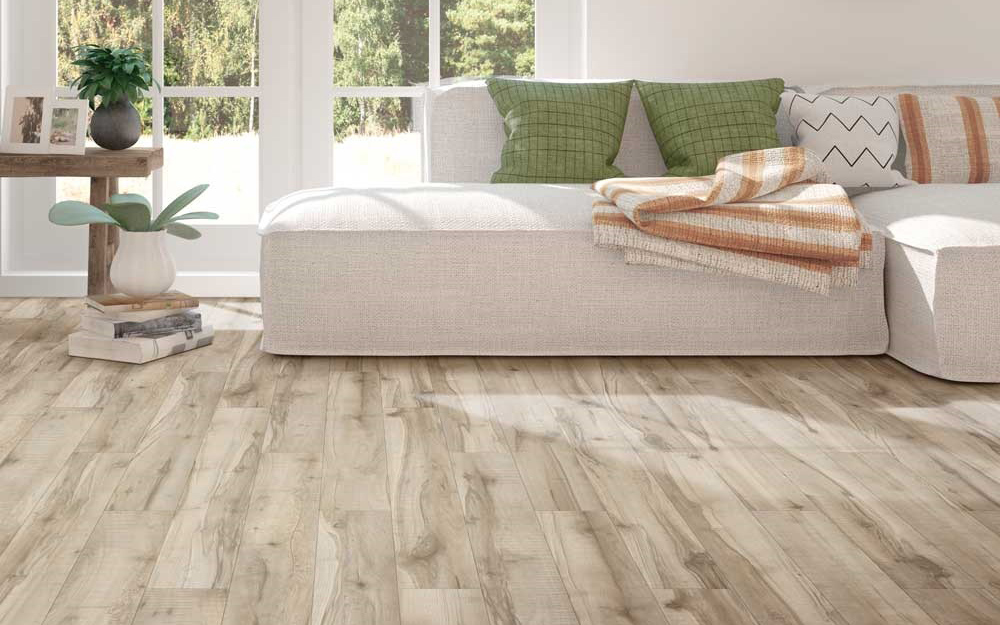When it comes to flooring, homeowners and designers are constantly searching for durable, stylish, and cost-effective options. Two of the most popular choices in the vinyl flooring market today are Luxury Vinyl flooring Dubai Planks (LVP) and Stone Plastic Composite (SPC) Vinyl. While both options offer resilience, aesthetic appeal, and ease of maintenance, they come with distinct differences that make them suited for different applications. So, which one should you choose? Let’s compare LVP and SPC vinyl in terms of composition, durability, aesthetics, installation, maintenance, and cost.
Understanding the Basics: What Are LVP and SPC Vinyl?
Luxury Vinyl Planks (LVP) are a popular flooring option designed to mimic natural materials like hardwood and stone. Made from multiple layers, including a waterproof core, a printed design layer, and a protective wear layer, LVP is known for its realistic textures and visual appeal.
Stone Plastic Composite (SPC) Vinyl is a more rigid and durable form of luxury vinyl flooring. It features a core composed of limestone powder, polyvinyl chloride (PVC), and stabilizers, making it highly resistant to impacts and temperature fluctuations. This composition gives SPC vinyl an edge in terms of durability and stability.
Composition and Durability
LVP:
Constructed with a flexible PVC core, making it softer underfoot.
Offers a comfortable, cushioned feel, which is ideal for homes with children or pets.
More prone to denting under heavy furniture or impact compared to SPC.
SPC Vinyl:
Made with a rigid core containing stone and plastic, providing superior stability and strength.
Less susceptible to dents, scratches, and temperature-induced expansion or contraction.
Ideal for high-traffic areas and commercial spaces where durability is a priority.
Aesthetic Appeal and Design Variety
Both LVP and SPC vinyl are designed to replicate the look of real hardwood, stone, or tile, but there are slight differences in how they achieve this.
LVP:
Typically offers a more realistic wood-like texture due to its softer core.
Comes in a wider range of styles, colors, and embossed textures.
Better for residential applications where aesthetics are a priority.
SPC Vinyl:
Also available in various designs, but the rigid core may reduce the depth of embossing, making textures slightly less pronounced.
Provides a more uniform, modern appearance that suits commercial and contemporary spaces.
Installation Process
Both LVP and SPC vinyl are known for their ease of installation, often using a click-lock system that allows for floating floor installation without nails or glue.
LVP:
More flexible, making it easier to install over slightly uneven subfloors.
Available in both glue-down and floating installation options.
Requires a proper underlayment for enhanced comfort and sound absorption.
SPC Vinyl:
Rigid core makes it more stable, but also means it needs a flatter subfloor.
Can be installed over most existing floors without extensive preparation.
More resistant to movement or shifting over time due to its dense composition.
Maintenance and Water Resistance
Both flooring types offer excellent water resistance, making them ideal for moisture-prone areas like kitchens, bathrooms, and basements.
LVP:
Fully waterproof but may require careful cleaning to prevent scratches.
Softer surface can be more prone to dents if heavy furniture is placed without protective pads.
Regular sweeping and occasional mopping with a damp cloth keep it in top condition.
SPC Vinyl:
100{d77f7f9b82b1bbbc0c834d3e3b0fb2d9003c9e4f50f39c4b1187723ec2de1f0f} waterproof and more resistant to wear and tear.
Harder surface makes it more resistant to scratches and indentations.
Easy to clean with standard vinyl floor cleaners.
Comfort and Sound Absorption
LVP:
Softer underfoot, making it more comfortable for prolonged standing.
Offers better sound absorption, reducing noise in busy households.
SPC Vinyl:
Rigid composition makes it slightly harder underfoot.
Can be noisier due to its dense core unless paired with a proper underlayment.
Cost Comparison
Price is often a deciding factor when choosing flooring, and both LVP and SPC vinyl are generally affordable compared to natural hardwood or stone flooring.
LVP:
Typically ranges from $2 to $7 per square foot, depending on brand and quality.
Slightly lower cost makes it a budget-friendly choice for homeowners.
SPC Vinyl:
Ranges from $3 to $8 per square foot, with premium options costing more.
Higher cost is justified by increased durability and longevity.
Which One Should You Choose?
The choice between Luxury Vinyl Planks and SPC Vinyl depends on your specific needs:
Choose LVP if you prioritize a softer, more comfortable feel, a realistic wood texture, and budget-friendly options for residential use.
Choose SPC Vinyl if you need a highly durable, rigid, and water-resistant option for high-traffic areas or commercial spaces.
Final Thoughts
Both LVP and SPC Vinyl offer outstanding benefits, making them excellent Flooring Dubai choices for modern homes and businesses. Whether you prioritize comfort, durability, or affordability, understanding their differences will help you make an informed decision. By weighing factors such as composition, maintenance, aesthetics, and cost, you can confidently choose the best flooring solution to suit your space.
Still unsure which one to go for? Consult a flooring expert or visit a showroom to see and feel the difference for yourself!


